Google Cloud Next 2023: The 20 Biggest Product Launches
Here’s the 20 products unveiled at Google Cloud Next 2023 today around AI, cloud infrastructure and cybersecurity that you need to know about.

Google Cloud’s innovation engine was on fire at Google Cloud Next 2023 today in San Francisco with the cloud company launching everything from a new networking platform and BigQuery Studio to more than a dozen artificial intelligence offerings via Vertex AI and Duet AI.
“We are in an entirely new era of digital transformation, fueled by gen AI,” said Google Cloud CEO Thomas Kurian at Google Cloud Next 2023 on Tuesday. “This technology is already improving how businesses operate and how humans interact with one another. It’s changing the way doctors care for patients, the way people communicate, and even the way workers are kept safe on the job. And this is just the beginning.”
[Related: Google Cloud Global VP: Why ‘We Are The Future’ Of Cloud For Partners]
The $32 billion Mountain View, Calif.-based cloud superstar announced 20 new or enhanced products at Google Cloud Next today, highlighted by the company’s focus in 2023 on artificial intelligence, and more specifically, generative AI.
Duet AI was injected into some of Google Cloud’s most popular offerings, PaLM 2 was upgraded, and Vertex AI received a healthy dose of new generative AI capabilities.
“On top of our world-class infrastructure, we deliver what we believe is the most comprehensive AI platform—Vertex AI—which enables customers to build, deploy and scale machine learning (ML) models,” said Kurian. “We have seen tremendous usage, with the number of gen AI customer projects growing more than 150-times from April to July this year.”
On the cloud infrastructure front, Google Cloud launched new cloud TPUs, virtual machines powered by Nvidia, and a new premium edition of Google Kubernetes Engine (GKE).
Google Cloud Next 2023: Day 1
Thousands of partners and customers flocked to the Moscone Center in San Francisco this week for Google Cloud Next 2023, marking the first time since 2019 that the company has held its flagship event in-person.
“Today at Google Cloud Next 2023, we’re proud to announce new ways we’re helping every business, government, and user benefit from generative AI and leading cloud technologies,” said Kurian in a blog post today. “It’s been an exciting year so far for Google Cloud.”
Google Cloud generated a record $8 billion in revenue during its second quarter 2023, representing a 28 percent sales growth year over year. Google’s 28 percent cloud sales growth was larger than both Amazon Web Services (AWS) and Microsoft during Q2 2023. Furthermore, for the first time ever, Google Cloud is now generating a profit. In Q2 2023, the company generated operating income of $395 million in the quarter, compared to a loss of $590 million in Q2 2022.
Google Cloud Next runs from Aug. 29 to Aug. 31.
CRN breaks down the 20 biggest product launches at the event that channel partners, ISVs and Google customers need to know about.
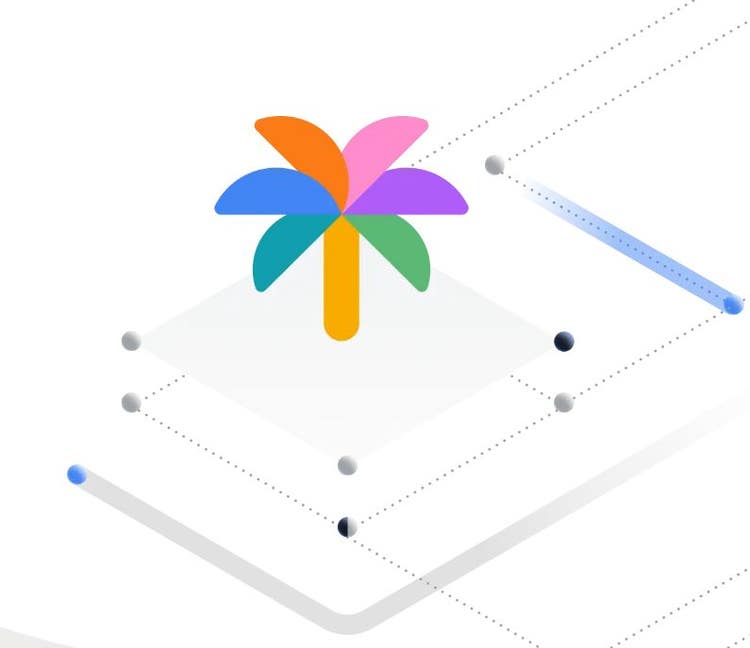
Vertex AI: PaLM 2 and Codey Upgrades
PaLM 2 is Google’s next-generation large language model (LLM) unveiled earlier this year. At Google Cloud Next today, the company upgraded PaLM 2 to give the offer the ability to increase the input token length by four-times, and in 38 new languages. More than 100 languages are now available in preview.
“We’re updating PaLM 2 to 32k context windows so enterprises can easily process longer form documents like research papers and books,” said Kurian.
Codey is Google’s AI-power coding assistant based on PaLM 2. A new version of Codey was unveiled that Google says will see customers witness up to 25 percent quality improvement in major supported languages for code generation and code chat.
“For PaLM 2 and Codey, we’re making adapter tuning generally available, which can help improve LLM performance with as few as 100 examples.” Kurian.

Google Distributed Cloud With AlloyDB
Google’s Distributed Cloud (GDC) will now allow customers to run AI and data workloads anywhere, with the integration of several Vertex AI services and AlloyDB Omni.
Google Cloud’s CEO said the move is designed to meet the unique demands of organizations that want to run workloads at the edge or in their data center.
“We’re enhancing the GDC portfolio to bring AI to the edge, with Vertex AI integrations and a new managed offering of AlloyDB Omni on GDC Hosted,” said Kurian.
The new AlloyDB AI offers an integrated set of capabilities for easily building generative AI apps including vector queries that are up to 10-times faster than Standard PostgreSQL. With AlloyDB Omni, users can also run AlloyDB virtually everywhere such as on-premises, AWS, Microsoft Azure or through GDC.

New Networking Infrastructure: Cross-Cloud Network Platform
Google Cloud’s new Cross-Cloud Network is a new networking platform that helps customers connect and secure applications across various clouds.
“[It’s] a global networking platform that helps customers connect and secure applications across clouds. It is open, workload-optimized, and offers ML-powered security to deliver zero trust,” said Google Cloud’s CEO. “Designed to enable customers to gain access to Google services more easily from any cloud, Cross-Cloud Network reduces network latency by up to 35 percent.”
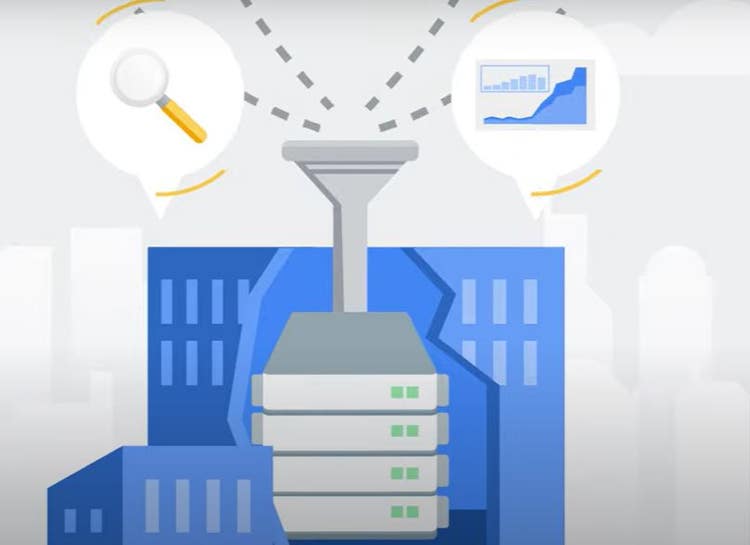
BigQuery Studio
Now in preview, Google’s new BigQuery Studio is a unified interface for data engineering, analytics and ML that allows users to work seamlessly across these three technologies. The goal is to make it easier for customers to discover, explore, analyze and predict data in BigQuery.
“A single workbench for data engineering, analytics, and predictive workloads, BigQuery Studio helps increase efficiency for data teams,” said Google Cloud’s CEO. “With new integrations to Vertex AI foundation models, we are helping organizations AI-enable their data lakehouse with innovations for cross-cloud analytics, governance, and secure data sharing.”
Vertex AI’s New Colab Enterprise
In one of its larger announcements, Google unveiled Colab Enterprise, a new managed service that combines Google’s Colab notebooks with enterprise-level security and compliance capabilities.
“Data scientists can use Colab Enterprise to collaboratively accelerate AI workflows with access to the full range of Vertex AI platform capabilities, integration with BigQuery, and even code completion and generation,” said Kurian.
Colab Enterprise allows users to start a notebook in BigQuery to explore and prepare data, then open that same notebook in Vertex AI to continue their work with specialized AI infrastructure and tooling. Teams can direct access data wherever they’re working. Colab Enterprise with become generally available in September.
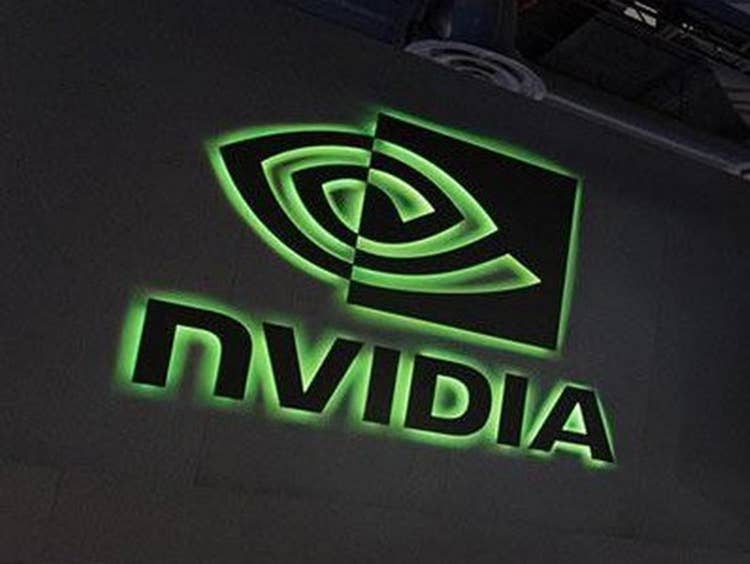
A3 With Nvidia H100 GPU
Google’s new Compute Engine A3 virtual machines powered by Nvidia 100 GPUs are purpose-built to train and serve demanding gen AI workloads and large language model (LLMs).
“It is purpose-built with high-performance networking and other advances to enable today’s most demanding gen AI and large language model innovations,” said Google Cloud’s CEO Kurian. “This allows organizations to achieve three times better training performance over the prior-generation A2.”
The A3 virtual machines powered by Nvidia 100 GPUs will become generally available next month.

Mandiant Hunt for Chronicle
On the security front, Google unleashed threat hunting on Chronicle data via Mandiant experts who use their intel to proactively search for undetected attacks.
“This service integrates the latest insights into attacker behavior from Mandiant’s frontline experts with Chronicle Security Operations’ ability to quickly analyze and search security data, helping customers gain elite-level support without the burden of hiring, tooling, and training,” said Kurian.
Mandiant Hunt for Chronicle is now available in preview.

New Cloud TPU v5e ‘Purpose-Built’ AI Accelerator
Cloud TPU v5e is being dubbed Google’s most cost-efficient and accessible cloud TPU (tensor processing units) ever that supports both medium-scale training and inference workloads.
“Cloud TPU v5e is our most cost-efficient, versatile, and scalable purpose-built AI accelerator to date,” said Kurian.
“Now, customers can use a single Cloud TPU platform to run both large-scale AI training and inference. Cloud TPU v5e scales to tens of thousands of chips and is optimized for efficiency. Compared to Cloud TPU v4, it provides up to a 2x improvement in training performance per dollar and up to 2.5x improvement in inference performance per dollar,” said Google Cloud’s CEO.

New Vertex AI Features: Multi-Turn Search And Search Summarization
Google launches several new features to Vertex AI including multi-turn search which provides the ability for users to ask follow-up questions without starting the interaction over.
Another new feature is conversation and search summarization that enables crisp summaries for search results and chat conversations.
Other new features to Vertex AI include tools that let developers pre-program prompts and responses for specific queries in natural language just like they would give instructions to humans, said Google.
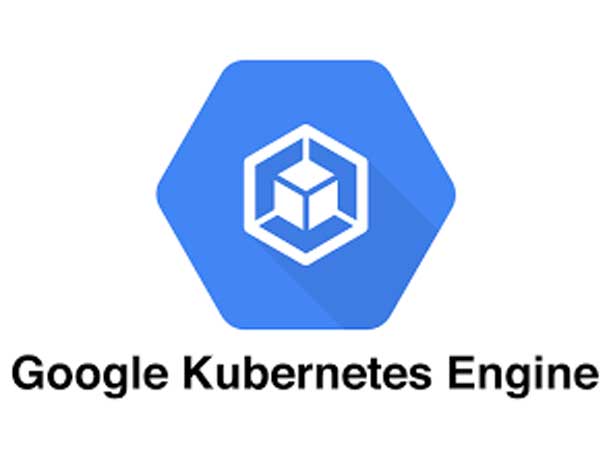
New Infrastructure: GKE Enterprise Edition
At Google Cloud Next today, the company launched a new premium edition of GKE [Google Kubernetes Engine], dubbed GKE Enterprise edition.
The new premium edition enables multi-cluster horizontal scaling needed for demanding AI and ML workloads.
“Customers are already seeing productivity gains of 45 percent, while decreasing software deployment times by more than 70 percent,” said Kurian. “Starting today, the benefits that come with GKE—including autoscaling, workload orchestration, and automatic upgrades—are now available with Cloud TPU.”
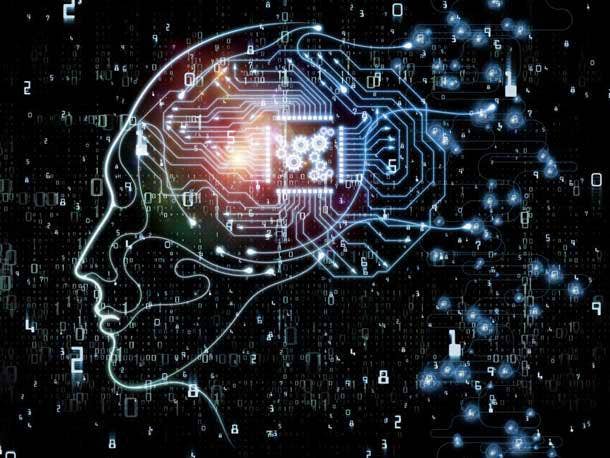
Vertex AI Model Extensions
Google unveiled new Vertex AI Extensions today, which is a set of fully-managed tools that help developers connect models to proprietary data or third parties.
These Vertex AI model extensions can retrieve information in real time and act on behalf of users across Google and third-party applications like Datastax, MongoDB and Redis.
“Developers can access, build, and manage extensions that deliver real-time information, incorporate company data, and take action on the user’s behalf. This opens up endless new possibilities for gen AI applications that can operate as an extension of your enterprise, enabled by the ability to access proprietary information and take action on third-party platforms like your CRM system or email,” Kurian
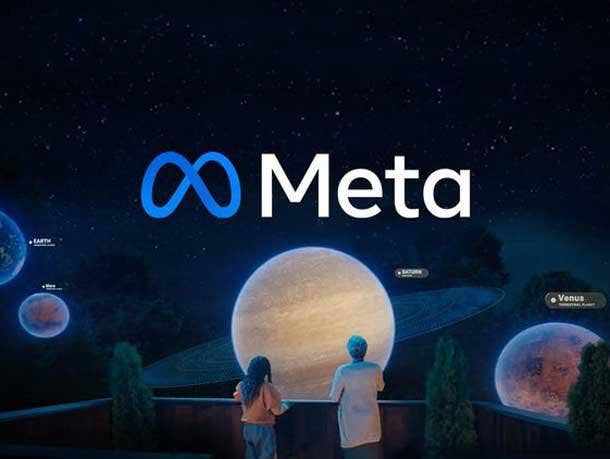
New Meta, Anthropic Models For Vertex AI
Google Cloud unveiled the availability of Llama 2 from Meta—formerly known as Facebook—and Technology Innovation Institute’s Falcon LLM, a popular open-source model.
Llama 2 is Meta’s open source large language model.
At Google Cloud Next, the company also announced the availability of Anthropic’s upcoming Claude 2 offering. Anthropic Claude is a next-generation AI assistance.
“In the case of LLama 2, we will be the only cloud provider offering both adapter tuning and RLHF.” Kurian.

Duet AI In BigQuery
Duet AI in BigQuery provides contextual assistance for writing SQL and Python to access and analyze user data, which can allow teams to focus more on logic and outcomes. It can generate full functions and code blocks, auto-suggest code completions and explain code and SQL queries.
“These capabilities can allow data teams to focus more on outcomes for the business,” said Google Cloud’s CEO.
Duet AI focuses on understanding user data and its usage patterns to assist in customer analysis by suggesting what questions to ask. Overall, Google said it wants data and business analysts to leverage Duet AI in BigQuery for faster data analysis.
Vertex AI Data Connectors
There is also new Vertex AI Data Connectors which help ingest data and read-only access for enterprise and third-party applications like Confluence, Salesforce and HIRA.
Vertex AI Data Connectors connects generative applications to commonly used enterprise systems. The solution enables developers with read-only data access from various third-party systems and Google data sources like Cloud storage and BigQuery.
Vertex AI’s Grounding Feature
The new Grounding feature in Vertex AI is aimed at increasing confidence in a user’s generative AI search and conversational applications.
This is done by rooting generative outputs inside a customers’ enterprise data. Organizations can flexibly decide if they want this data to be supplemented with the foundation model’s training data. Google said users can also leverage helpful features like citations and to boost confidence in the quality of the information that is shared.

Duet AI To Google Cloud’s Security Operations
Duet AI can help security professionals prevent threats, reduce toil in their security workflows, and uplevel security talent.
It is now integrated into Google’s security products including Chronicle Security Operations, Mandiant Threat Intelligence and Security Command Center.
Duet AI serves as an expert pair programmer and assists users with contextual code completion, offering suggestions tuned to a customer’s code base, generating entire functions in real time, and assisting with code reviews and inspections.
“Duet AI can quickly summarize and classify threat information, translate natural language searches into queries, and provide suggested next steps to remediate issues, which can reduce time for detection and response and make overworked security professionals more productive,” said Calder.
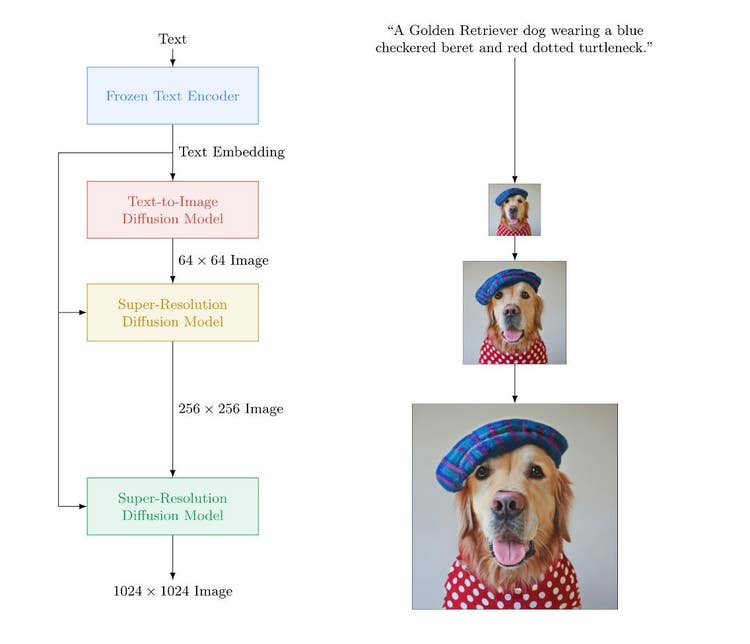
Vertex AI: New Style Tuning For Imagen
For Imagen, Google updated its Imagen model to improve the quality of generated images. Additionally, Google Cloud is introducing a new adapter tuning method for images called Style Turning. Customers can now create images aligned to their brand with as few as 10 reference images.
“We’re also introducing a new method of tuning for Imagen, called Style Tuning, so enterprises can create images aligned to their specific brand guidelines or other creative needs with a small amount of reference images.” Kurian.
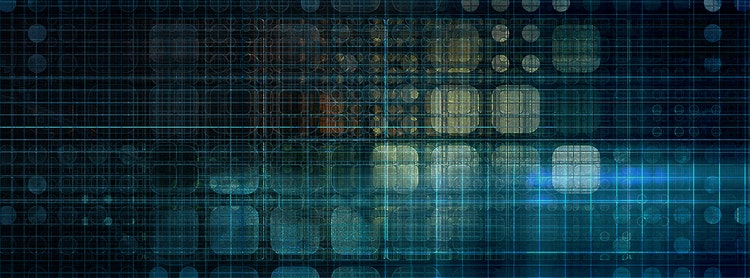
AlloyDB Omni And Alloy AI
Google unveiled AlloyDB Omni, the downloadable edition of AlloyDB that can run anywhere, even on a laptop.
“With AlloyDB Omni, you can also run AlloyDB virtually everywhere,” said Kurian. “This includes on-premises, on Google Cloud, AWS, Azure, or through Google Distributed Cloud.”
Google also launched AlloyDB AI in preview. This is an integrated set of capabilities for easily building enterprise generative AI applications. It allows users to easily generate embeddings from within their database, while also fully integrated with Vertex AI.
“AlloyDB AI is an integral part of AlloyDB, our PostgreSQL-compatible database service. AlloyDB AI offers an integrated set of capabilities for easily building GenAI apps, including high-performance, vector queries that are up to 10x faster than Standard PostgreSQL,” said Kurian.

Other Security Launches: Cloud Firewall Plus; Agentless Vulnerability Scanning
On the network security advancements, Google launched Cloud Firewall Plus which adds advanced threat protection and next-generation firewall capabilities to our distributed firewall service—powered by Palo Alto Networks. Additionally, it includes a network service integration manager that allows network administrators to easily integrate trusted third-party firewall applications for traffic inspection.
For its Security Command Center, Google added a new agentless vulnerability scanning capability.
“These posture management capabilities in Security Command Center detect operating system, software, and network vulnerabilities on Compute Engine virtual machines,” said Kurian.